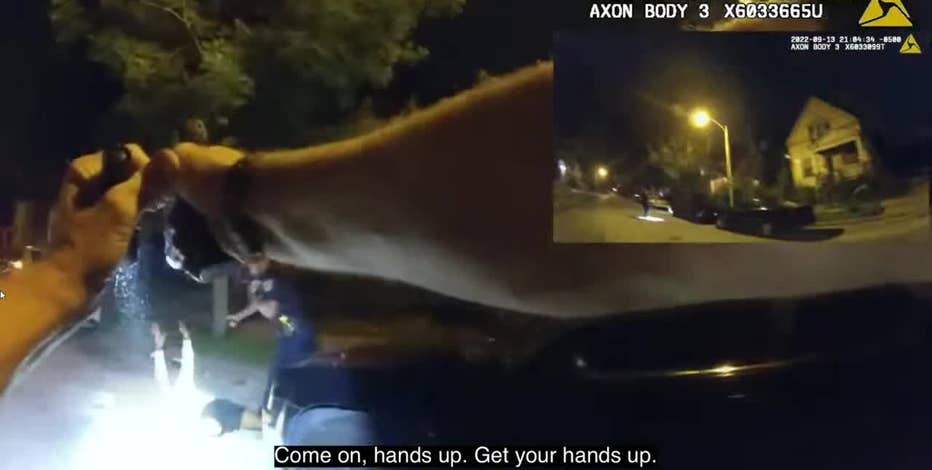Milwaukee police video release lawsuit; judgment request denied
MILWAUKEE - A Milwaukee County Circuit Court judge on Friday, March 29 denied the Milwaukee Police Association's motion for declaratory relief in a lawsuit against the city related to the release of critical incident video.
The case was about who gets video – and when – of police situations that seriously hurt or kill people.
Court filings indicate the judge denied the police union's request for a judgment that the city violated state law and officers' collective bargaining agreement. The judge also denied the city's motion to dismiss the lawsuit.
SIGN UP TODAY: Get daily headlines, breaking news emails from FOX6 News
A May 2023 shooting on Milwaukee's south side was the first test of the new video release policy, which was approved that April by the Fire and Police Commission. In that shooting, officers shot and wounded two people.
Under the new policy, video from the critical incident should have been released to the families of the people hurt within 48 hours. The public would have gotten to see it within 15 days. But a week after that shooting, a Milwaukee County judge put that policy on hold.
Prior to the April policy decision, there was nothing in writing; MPD would typically release edited video of incidents within roughly 45 days.
The MPA filed its lawsuit against the city one day after the FPC approved the policy. It argued the city was required to bargain with the union over the policy because it could relate to wages, hours and employment. The city's position was that it gave the union an open door to meet about the policy, but the union said those talks were premature and chose not to meet.
Additionally, the city argued rule creation related to management is a right that the city, the chief and the FPC have exclusive authority over – and any bargaining is limited to the impact of the rule only.
Judge's decision
The lawsuit changed hands with several judges since, and finally went before Judge Brittany Grayson – who heard arguments in the case in January and handed down her ruling Friday.
In her decision and order, Grayson said she was not persuaded by the city's argument to dismiss the lawsuit. She said the MPA had valid claims, and its complaint is legally sufficient for the lawsuit to continue. Grayson said the video release policy could potentially trigger the requirement to collectively bargain under the bargaining agreement, as it relates to wages, hours and conditions of employment.
FREE DOWNLOAD: Get breaking news alerts in the FOX6 News app for iOS or Android.
Grayson also said the city focused the majority of its arguments on the merits of the union's claims, rather than the legal sufficiency of the pleadings.
However, the judge also denied the union’s request for judgment that the city violated Wisconsin law and the bargaining agreement when the city implemented the video release policy. Grayson said that entering a judgment in favor of the union wouldn't end the uncertainty or controversy that led to the lawsuit in the first place.
Grayson also said the union failed to establish that it is entitled to a ruling that collective bargaining is required over the video release policy. To do so, she said the union must show its interests relating to wages, hours and conditions of employment outweigh the city's interests in department management and public policy. And at this point, she said the union has not met its burden, and didn't show that collective bargaining was required under the agreement before the video release policy was put in place.
A status conference in the case is set for May 16.
Reaction
FOX6 has reached out to the union and the city attorney’s office for comment on Friday, but did not hear back. MPA later posted the following statement from President Andrew Wanger on its Facebook page:
"We look forward to presenting additional evidence at a hearing where we anticipate officers will testify how SOP 575 negatively affects wages, hours, and most importantly, conditions of employment as they work to protect our community.
"Releasing body camera footage before investigations have reached their logical conclusion is both short-sighted and will actually have a negative impact on the transparency the community seeks in these incidents."


